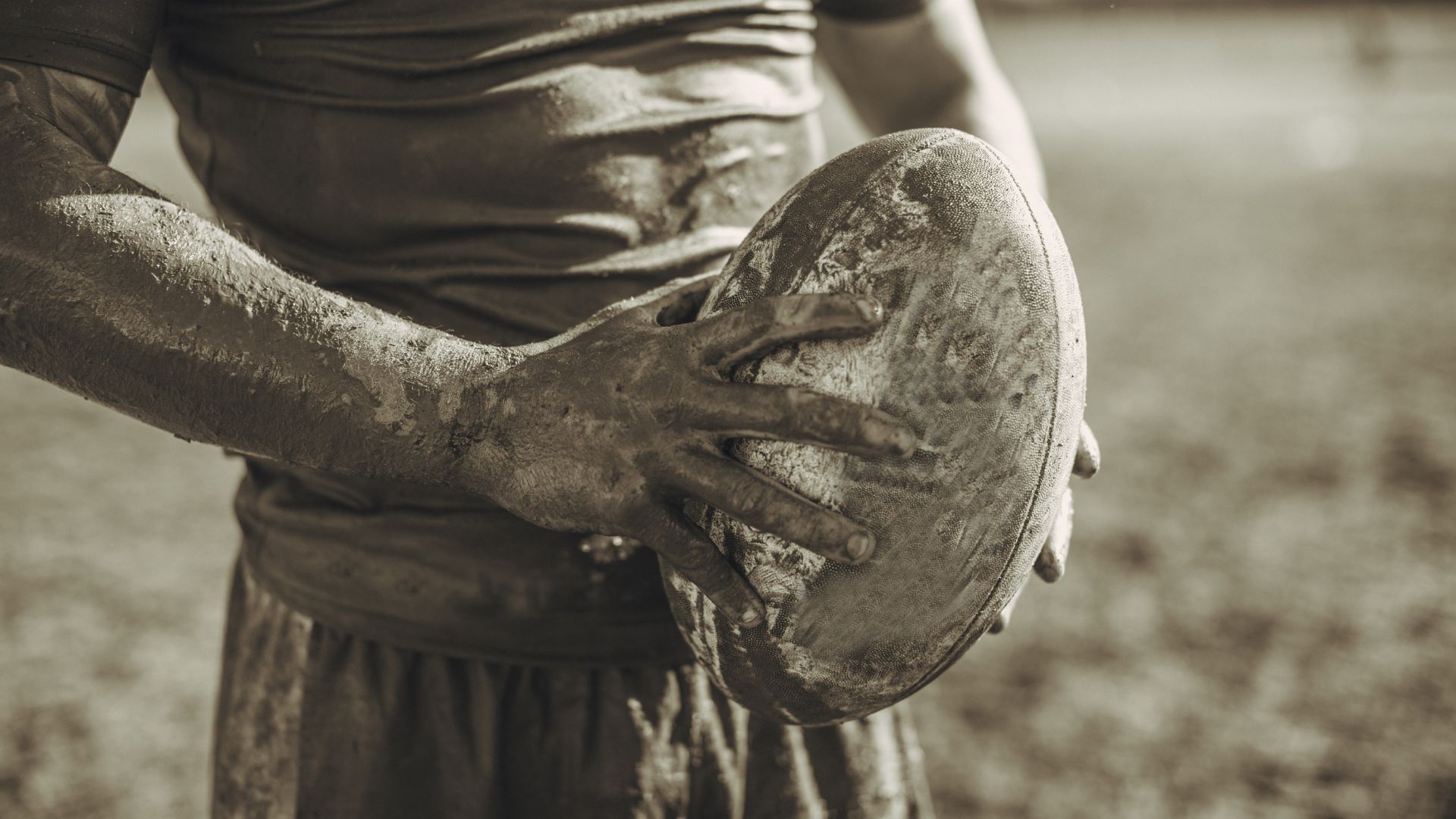Trying to improve your rugby skills? You’re in the proper location.
But it’s not just developing physical toughness. It’s also a mental game as well.
Let’s explore how to improve your rugby skills.
Introduction to Improving Rugby Skills

Physical attributes will always be at the core for rugby players. They must find the right balance between strength, speed, and of course, intelligence.
Think of playing like Siya Kolisi or Jonny Wilkinson. Before you shape yourself like those greats, it all begins with mastering the fundamentals.
Physical Conditioning for Rugby
Before you can dominate the pitch, you first have to be at your best.
Strength training
Hit the gym and focus on compound movements:
• Squats
• Deadlifts
• Bench press
These kinds of workouts provide you the strength you need to power through tackles and scrums.
Cardiovascular fitness
For the entire 80 minutes of the game, you should be at your best.
Mix up your cardio with:
• High-intensity interval training (HIIT)
• Long-distance runs
• Sprint drills
Aim to have the stamina of players like Richie McCaw.
Flexibility and mobility
Always stretch before you begin.
Flexibility is a big plus for those aiming to bring their best on the field.
Plus, they help in minimising injuries.
Explore doing pilates or yoga.
Developing Core Rugby Skills
Skills win games. Let’s break down the essentials.
Passing and catching
Practice your passing:
• Spiral pass
• Pop pass
• Offload
Work on catching from different angles and speeds.
Use a rugby ball every chance you get – even when you’re just hanging out.
Kicking
Channel your inner Dan Carter:
• Practice grubber kicks
• Work on your drop kicks
• Perfect your place kicks
A good kicker can change the game, just ask any fly-half.
Tackling and defensive techniques
Safe, effective tackling is crucial:
• Practice proper form
• Use tackle bags
• Work on your technique with teammates
Remember, good defense wins championships.
Understanding Rugby Tactics and Strategy
Rugby’s not just about brute force – it’s a thinking person’s game.
Study different plays and formations.
Watch professional matches and analyze the tactics used at places like Twickenham Stadium or Eden Park.
Position-specific Training and Development
Each position in rugby has its unique demands.
Tailor your training to your role on the team:
• Forwards: Focus on strength and set-piece skills
• Backs: Work on speed and evasive running
Study game footages of the greats in your position and pick up a thing or two.
Nothing comes easy if you want to be great. You really have to put the effort into it.
Committing to the craft, you’ll soon see improvements in your game little by little.
Remember, even the greats like Dan Carter and Siya Kolisi started somewhere.
So grab that rugby ball, hit the pitch, and start working on how to get better at rugby today.
Mental Preparation and Game Awareness
As physical of a game as rugby is, it’s not all that.
There’s the mental game, too.
Develop your rugby IQ:
• Study the rules inside and out
• Learn to read the game and anticipate plays
• Practice decision-making under pressure
Mental toughness is key.
Work on:
• Concentration techniques
• Stress management
• Positive self-talk
Players like Richie McCaw isn’t just strong physically. He’s just as tough mentally.
Nutrition and Recovery for Rugby Players
Keeping yourself healthy builds a strong base for the world’s best rugby players.
Nutrition:
• Eat a balanced diet which is rich in protein and complex carbs
• Stay hydrated
• Consider consulting a sports nutritionist for personalized advice
Recovery:
• Get enough sleep – aim for 8-9 hours per night
• Use active recovery techniques like light jogging or swimming
• Don’t underestimate the power of rest days
Participating in Team Training and Practice Matches

Individual skills are important, but rugby is ultimately a team sport.
• Attend all team training sessions
• Participate in practice matches to apply your skills in game situations
• Work on your communication skills on the field
As cliche as it sounds, teamwork indeed makes the dream work.
Analyzing Professional Rugby Games for Inspiration
Learn from the best by watching professional matches:
• Study games from the Six Nations Championship
• Analyze Rugby World Cup matches
• Watch how the British and Irish Lions perform under pressure
Pay attention to:
• Player positioning
• Team strategies
• Individual skill execution
Conclusion: Continuous Improvement in Rugby
Remember, getting better at rugby is a continuous process. Even top players like Jonny Wilkinson were always looking to improve.
Key takeaways:
• Focus on both physical and mental aspects of the game
• Master the core skills: passing, kicking, and tackling
• Understand team tactics and your role within them
• Stay committed to regular practice and training
• Learn from watching and analyzing professional rugby
You can never tire being better. That’s true may it be for players who dream to play at Ellis Park one day or those who just want to get better for his neighborhood club.
But what makes improving in the game of rugby more special is the thought of enjoying the grind as you continue to challenge yourself to get better.
Now that the pitch is calling, grab your gum shield and head outside.